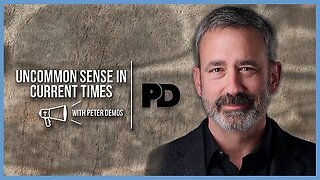Premium Only Content

Next in line effects
Impaired recall for an event immediately preceding an anticipated public performance. The effect was first reported in 1973 by the US graduate student Malcolm Brenner (born 1946), who performed an experiment in which a group of participants sat around a circular table taking turns reading words aloud, trying to remember as many words as possible. After going around the table several times so that each participant had read out several words and there were many more read out by others to remember, the participants' recall was tested.
Recall tended to be best for the words that the participants had read out themselves (the von Restorff effect) and worst for the words immediately preceding the words that they had read out (the next-in-line effect). The effect is believed to be due to both attention distraction and retrograde amnesia.
-
 1:27:24
1:27:24
Game On!
10 hours ago $6.33 earnedEagles DOMINATE Washington on TNF thanks to Saquon Barkley!
35.8K1 -
 17:10
17:10
Film Threat
1 day agoDUNE: PROPHECY EARLY REVIEW | Film Threat Reviews
127K9 -
 51:29
51:29
Uncommon Sense In Current Times
13 hours ago $23.36 earned"Why This Election Was For Protecting Christian Freedom"
75.1K13 -
 10:46
10:46
Degenerate Jay
17 hours ago $13.06 earnedThe Rejected Superman Ending Of Smallville Would Have Changed Everything
54.1K9 -
 19:01
19:01
Jamie Kennedy
16 hours agoWe're in a World of Dummies! | From Ep. 176 Hate to Break It To Ya w/ Jamie Kennedy
64.8K10 -
 3:54
3:54
BIG NEM
1 day agoWelcome to #NEMSWORLD UNCUT. The World's First Uncensored Sketch Comedy Podcast.
45.4K8 -
 3:09:28
3:09:28
Price of Reason
18 hours agoElon Musk TARGETED By Hollywood & MSM! Yellowstone DISAPPOINTS! Dragon Age Veilgard DISASTER!
132K24 -
 5:03:12
5:03:12
Akademiks
14 hours agoLil Durk Pleads NOT GUILTY and Hires NBA Youngboy Lawyer To Represent him! Lil Baby tryna comeback?
158K14 -
 3:27:19
3:27:19
SNEAKO
15 hours agoSNEAKO X JACE!
119K12 -
 57:42
57:42
The Charlie Kirk Show
15 hours agoTHOUGHTCRIME: Clash of the Cabinet Edition
194K70